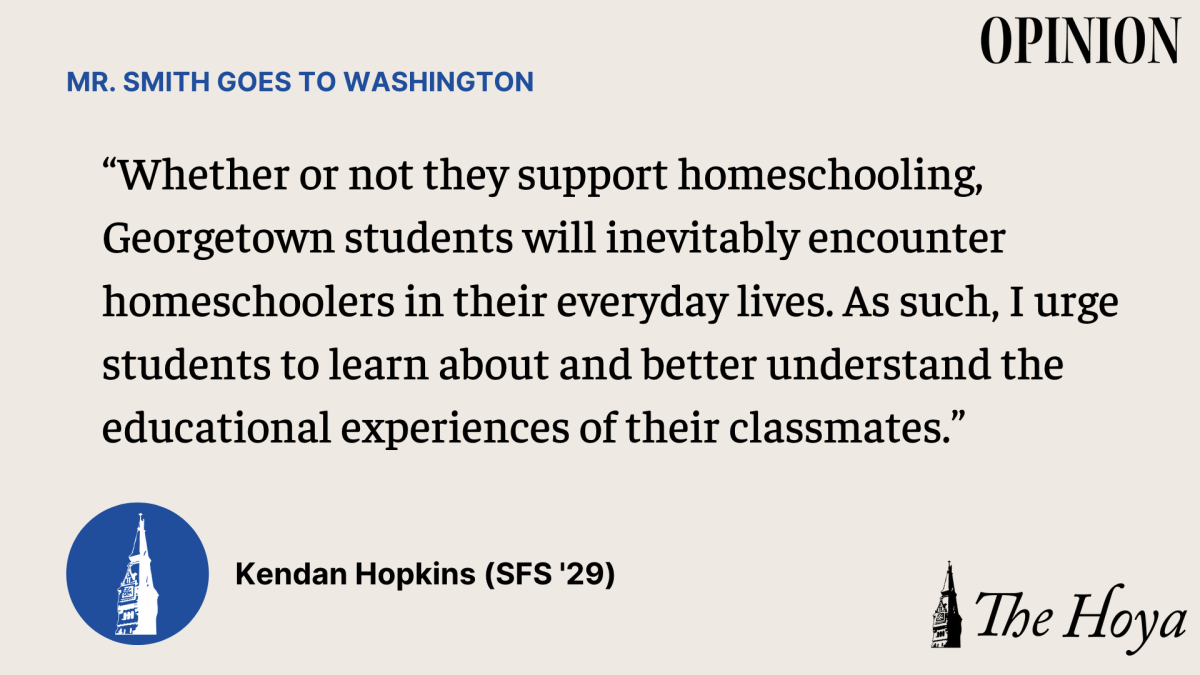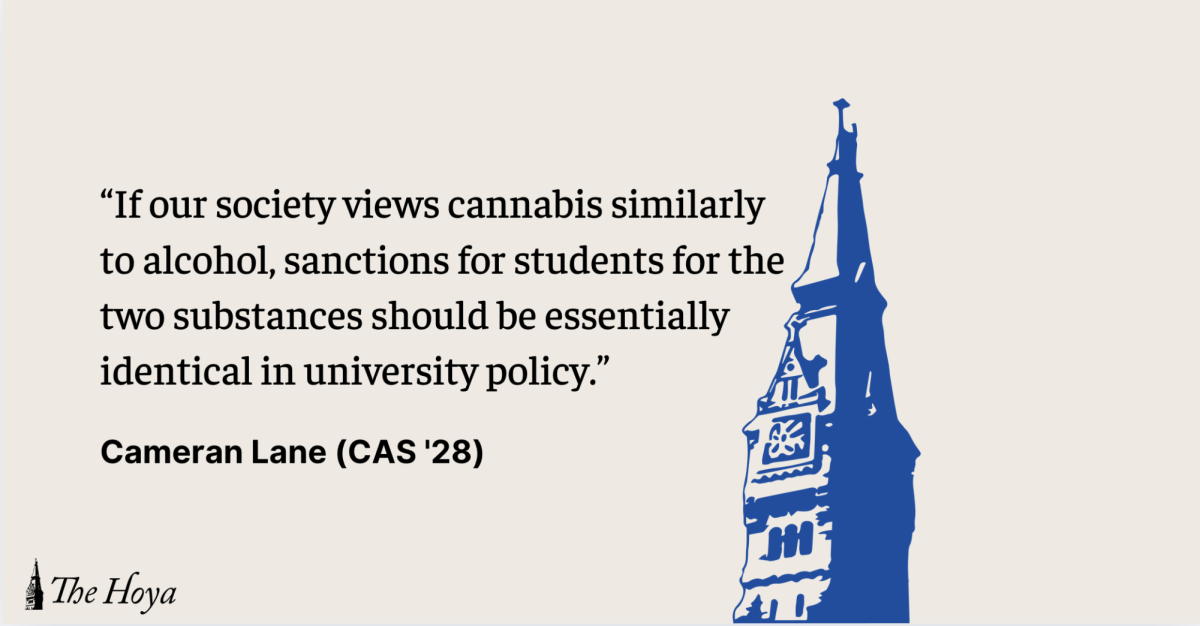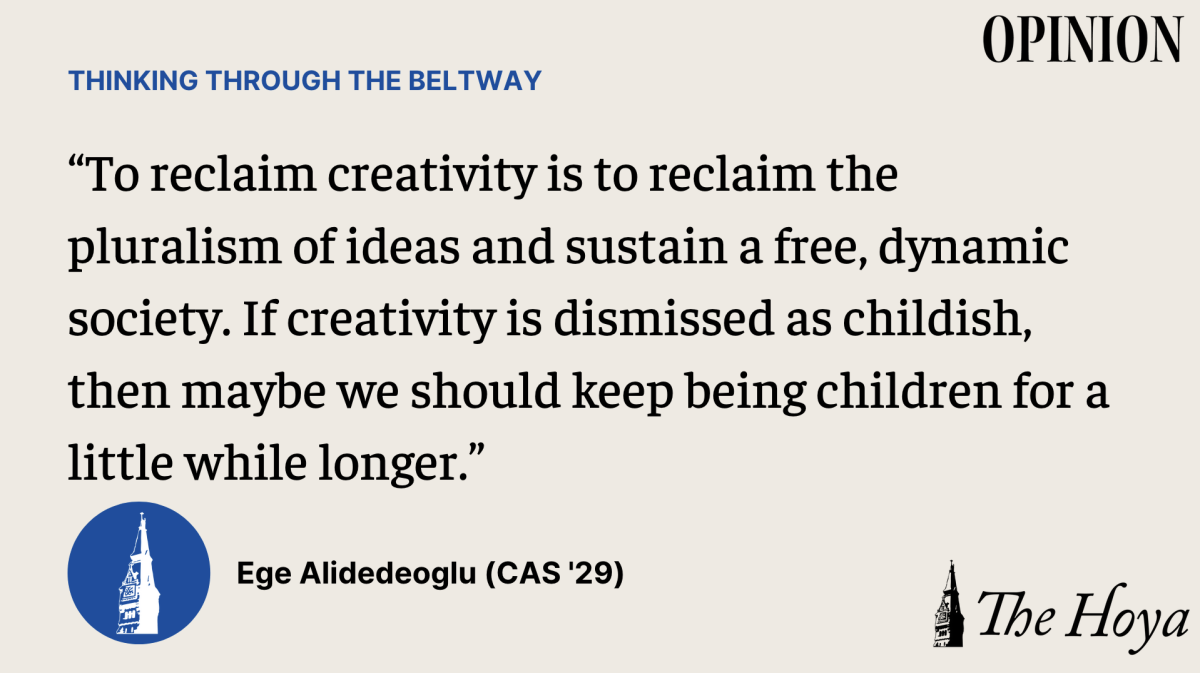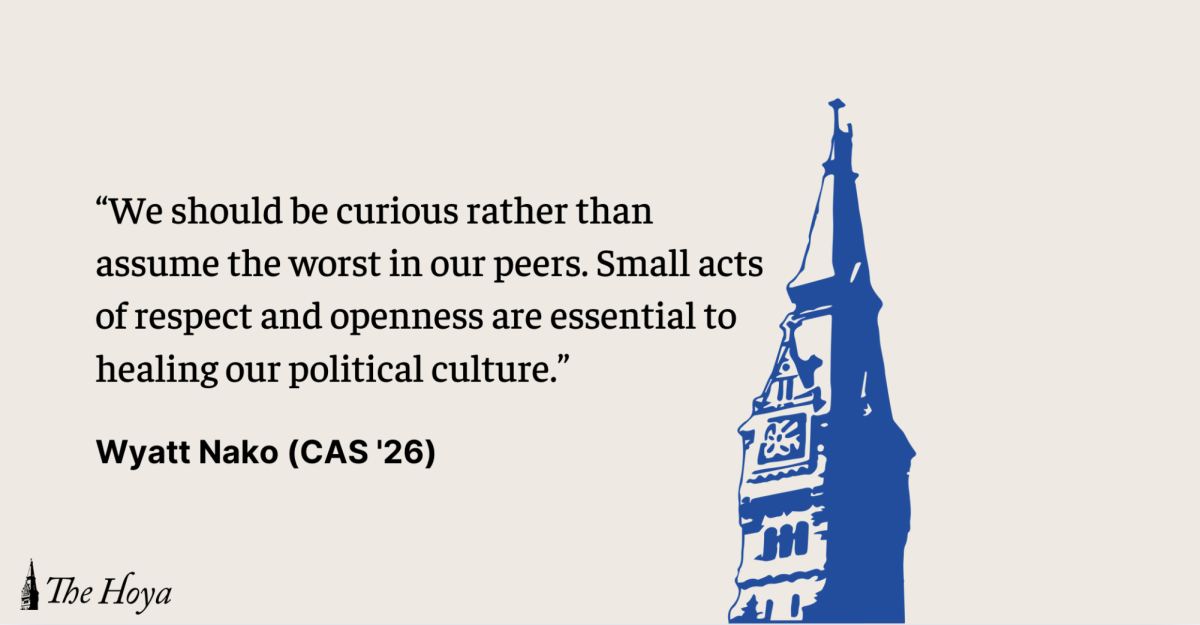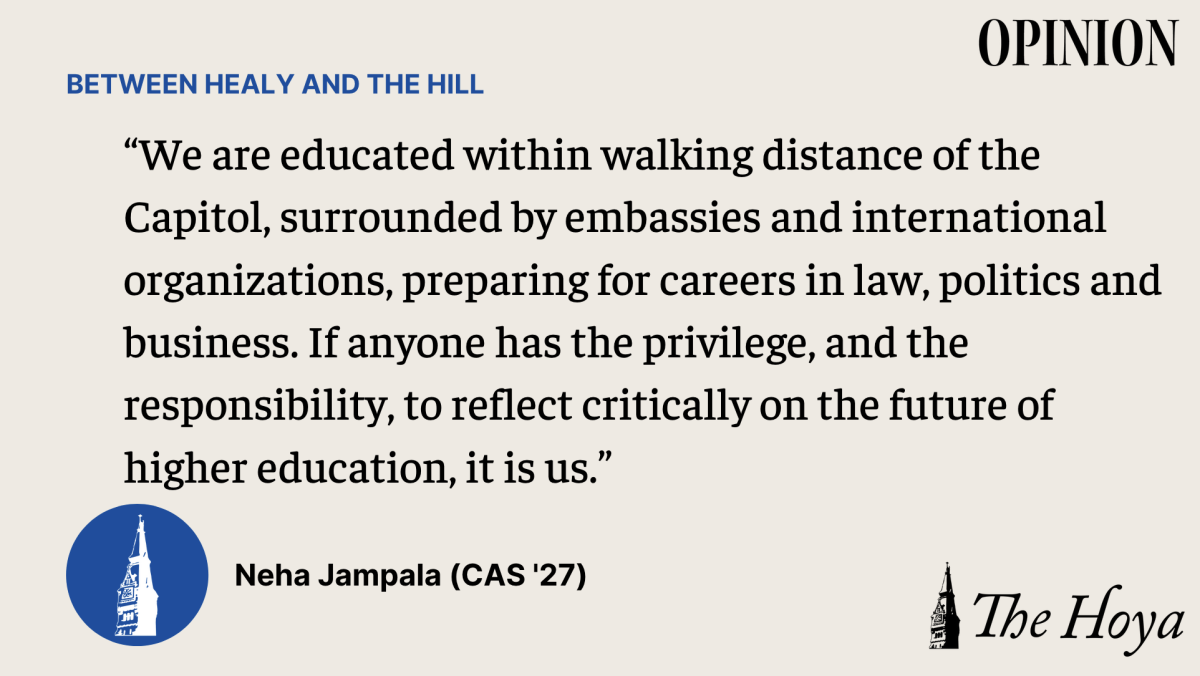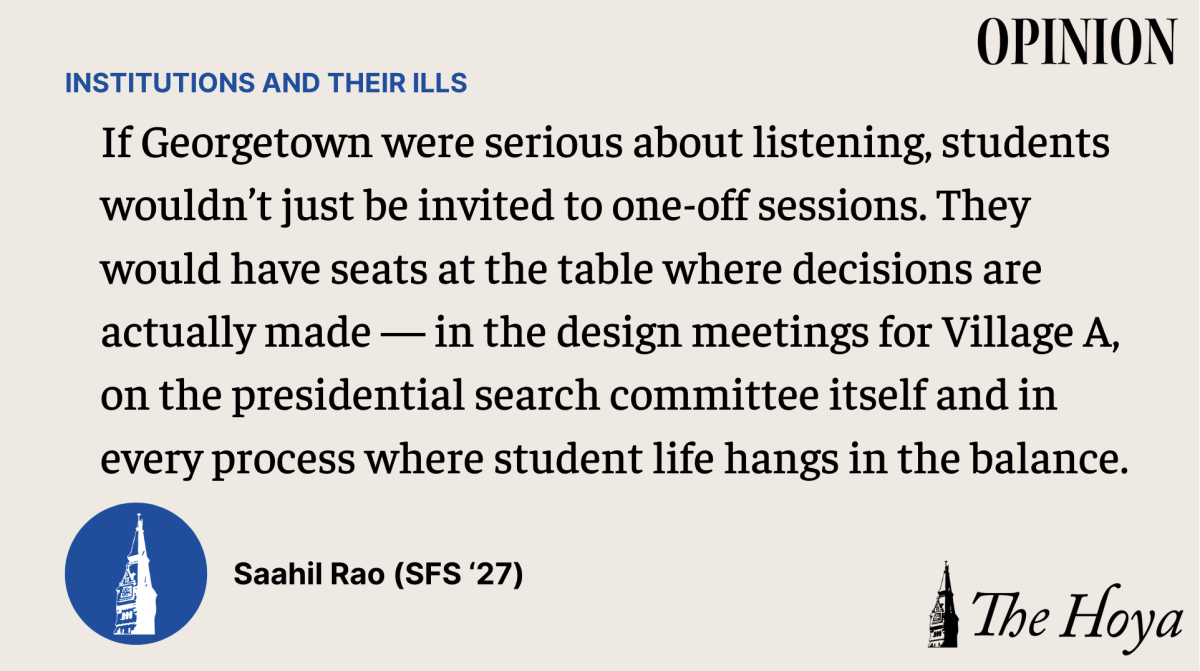Over the past several weeks, I have heard many stories of “firsts”: living with a roommate, registering for classes and applying to clubs. My own monumental first, however, was venturing into a real classroom taught by a formal teacher.
Home education has been a staple of the rural United States for decades, yet stereotypes about homeschooled students persist. Images of awkward, antisocial teenagers are common in the cultural ethos. However, these depictions do not accurately reflect the majority of homeschoolers. Having been taught by my parents my entire life, I believe students from homeschooled backgrounds deserve more accurate acknowledgment from our elite institutions. In this installment, I aim to challenge your traditional views of education by making you consider the benefits and drawbacks of home education. At the same time, I encourage you to discover other Hoyas’ unique learning backgrounds.
I regretfully admit that while I was homeschooled, I did not wear pajamas to class every day. Like many other homeschoolers, I followed a surprisingly structured system: class started 8 a.m. on Mondays and lasted through Friday — except when I visited local museums, workshops or homeschool co-ops — and ended at 5 p.m. Each subject began with textbook learning or instruction from my mother, followed by practice through, well, homework. Because my mom was an experienced English teacher, I could always rely on thoroughly prepared lesson plans. Unlike traditional school, however, I had the flexibility to slow down or speed up a course, a mainstay advantage of homeschooling. For instance, I struggled with geometry in the eighth grade, but I was able to extend my learning by a few weeks till I mastered the material.
Once I reached high school and tackled more difficult subjects, I added virtual classes to my curriculum. I took online STEM AP courses, such as Physics I and Calculus AB, while my mother continued teaching me humanities-centered AP courses like European History and English Literature. People are often surprised to learn I took AP courses, with many assuming homeschoolers are never tested under standardized benchmarks. And yet, I had to take the SAT just like my peers; I filled out the same college applications. In many ways, then, homeschooling is less alien than it may seem.
I am frequently asked why I chose homeschooling, and to properly answer, I must describe my hometown, Beaverdam, Va. We’re home to blue-collar workers, farmers and the kind of people you would see in a movie filled with American clichés (think red, white and blue everywhere). Parts of this environment are reflected in local public schools. Patrick Henry High School, for example, only offers 11 AP courses, which is not conducive to applying to elite universities. Further, Hanover County (where Beaverdam is located) spends approximately $3,000 less per student than the rest of Virginia. After a long discussion, my parents and I decided I would have the best chance for academic growth if I were educated at home rather than at the underfunded schools nearby.
Unfortunately, homeschooling is far from a universal solution. When poorly managed, it can produce incredibly narrow-minded, dogmatic students. I have seen firsthand the political, religious and academic indoctrination that thrives in settings where opposing viewpoints are limited and social interaction is rare. Confederate flags, the Lost Cause ideology and whitewashed history are commonplace in this community. Some recent instances of abuse are even related to homeschool environments. Consequently, there is significant merit in debates against unregulated homeschooling. It is important to question whether homeschoolers require greater oversight, what qualifications parents need to teach their children and ultimately, if homeschooling benefits society.
In my admittedly biased opinion, home education remains an excellent option for those who are dedicated to learning and have the resources to succeed. I can confidently say my mother’s superb instruction got me into Georgetown University. Though I recognize my experience is far from typical, there are many high-achieving homeschoolers whose best chance for success is likewise within the home.
Whether or not they support homeschooling, Georgetown students will inevitably encounter homeschoolers in their everyday lives. As such, I urge students to learn about and better understand the educational experiences of their classmates. We can gain much insight from the distinct perspectives on scholarship that each Hoya offers.
Kendan Hopkins is a first-year in the School of Foreign Service. This is the first installment of his column “Mr. Smith Goes to Washington.”


